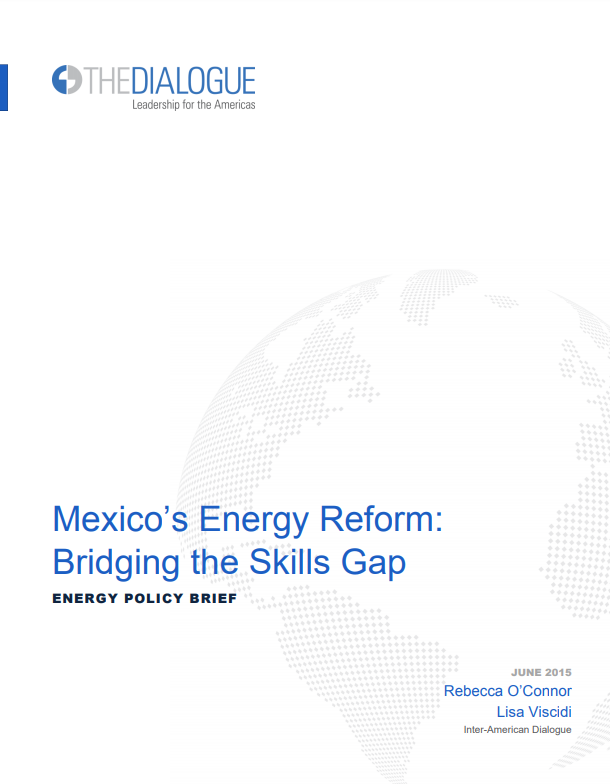Mexico: How Far Have its Institutions Really Come?
The question remains if Mexico has achieved a degree of institutional development consistent with its participation in those organizations.
This post is also available in: Español
Firms across Latin America are complaining about the difficulties of recruiting workers with the technical skills their businesses demand. Lack of adequate skills is becoming a bottleneck for growth in technologically complex industries, harming government efforts to increase investment in strategic sectors of the economy. In Mexico, the energy reform creates opportunities to generate new jobs and educate and train workers in specialized skillsets, but the country will also face challenges in meeting additional demand for skilled labor.
Many new oil companies, utilities and service providers are expected to enter Mexico and compete for talent in the coming years. New and expanded government agencies will also need more skilled professionals. At the same time, as many as half of Pemex’s employees will be at or near retirement age within a decade. The energy sector will likely see at least $50 billion of new investment by 2018, with each billion dollars yielding 2,700 direct jobs and 2,700 indirect jobs, the government estimates.
However, the absence of quality education at the primary and secondary levels, low enrollment in energy-related higher education programs and weak industry-academia ties mean not enough graduates are prepared to work in the sector.
On April 28, 2015, the Inter-American Dialogue, in partnership with Comexi and the American Chamber of Commerce of Mexico, hosted a roundtable discussion to bring together senior representatives of the Mexican government, industry executives and leaders in education to discuss challenges and opportunities for human capital and the energy and oil and gas sectors in Mexico. Participants discussed what skills will be needed in the sector, what Mexico’s educational institutions can do to meet this new demand, and how government policies can help close the skills gap.
According to the report, the lack of graduates with the day-to-day skills needed to perform energy sector jobs could become a significant hurdle to the successful implementation of the energy reform. In order to bridge the skills gap, Mexico’s government should continue to work with the private sector to address bottlenecks by increasing internships, on-the-job trainings and certifications, foster diversity to make the energy sector more dynamic and competitive and expand upon international exchanges to make use of best practices linking industry with technical and academic degrees.
Partner Institutions:
Sponsors:
The question remains if Mexico has achieved a degree of institutional development consistent with its participation in those organizations.
Focusing on transnational crime is a top priority of the Obama administration’s policy in Latin America.
As global temperatures continue to rise with the global community stalled on any way to stop them, countries must prepare to adapt to increasingly volatile environmental conditions.
